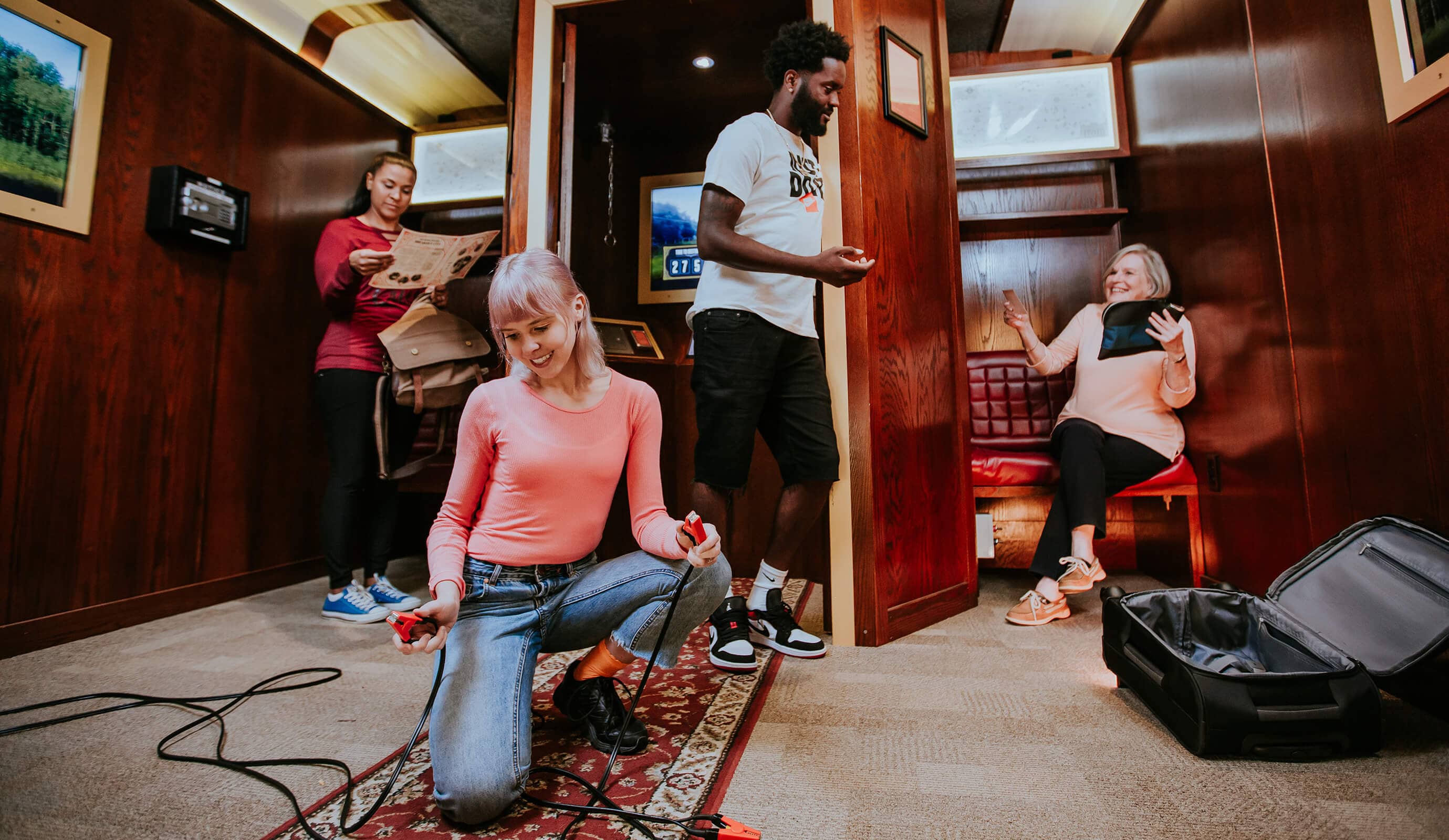Group Techniques: How to Team up Effectively in a Retreat Area
Teams need to actively listen to each participant's insights, designate functions that straighten with specific toughness, and maintain regular check-ins to ensure emphasis and protect against redundancy. By fostering an environment that values cohesion and flexibility, groups can considerably increase their efficiency and success prices.
Establish Clear Interaction

To promote clear communication, it is necessary to mark a main factor of contact for details dissemination. This duty involves summarizing findings and recommended approaches to ensure everybody continues to be on the very same web page. Furthermore, embracing a methodical method to conversations can avoid disorderly exchanges. For example, brief, concentrated updates from each employee can keep the team notified without frustrating them with information.

Designate Functions Tactically
While clear communication establishes the structure for effective team effort, appointing roles purposefully makes certain that each staff member's strengths are used efficiently. In a getaway area situation, the time-sensitive and complicated nature of difficulties necessitates a well-organized technique to job delegation. By identifying and leveraging specific proficiencies, teams can optimize their analytical capacities and improve overall performance.
Somebody with an eager eye for detail may stand out in finding covert objects, while a logical thinker could be better fit to fixing problems. This function often calls for solid organizational and social abilities.
2nd, guarantee that functions are adaptable and versatile. As brand-new difficulties arise, the group must have the ability to pivot, reallocating jobs as required. This adaptability aids preserve energy and protects against bottlenecks that might take place because of stiff function projects.
Ultimately, a tactical method to function assignment not only makes the most of the toughness of each employee but likewise promotes a cohesive atmosphere, driving the group towards an effective getaway.
Use Diverse Skills
Identifying and taking advantage of the varied skills within your group can dramatically boost your performance in an escape area. Each employee brings one-of-a-kind strengths to the table, and properly leveraging these blog abilities can speed up analytical and boost general effectiveness. For instance, a staff member with solid logical skills could succeed at analyzing complex codes or patterns, while one more with keen observational capacities may promptly find surprise clues that might neglect.
Reliable interaction is essential to using these diverse skills. Encourage team participants to voice their insights and ideas quickly, making sure that all prospective remedies are considered. This inclusive technique cultivates a dynamic atmosphere where creativity and vital reasoning can grow. In addition, assigning jobs that align with each member's strengths can prevent traffic jams and guarantee that progression is continual.
Furthermore, variety in abilities typically translates to variety in believing designs, which is important in a getaway area setup. While some difficulties might call for logical thinking and accuracy, others may gain from creative and lateral thinking. Recommended Reading By recognizing and leveraging this variety, teams can resolve a broader array of challenges better, thus increasing their chances of a successful escape.
Manage Time Effectively
Determine noticeable problems and separate tasks based on group participants' strengths, making certain that nobody is idle. This technique can assist keep the group focused and prevent time from slipping away unnoticed.
In addition, avoid one-track mind. If a challenge is taking too long, turn staff member or go on to an additional difficulty, returning later on with fresh perspectives. Communication is critical-- maintain everybody updated on addressed problems and staying jobs to stay clear of repetitive efforts.
Lastly, use any type of tips or clues sparingly however strategically - best escape room. Knowing when to ask for help can conserve valuable time. By sticking to these time monitoring concepts, teams can substantially enhance their chances of a successful and pleasurable escape area experience
Debrief and Reflect
Representation is an essential element of group development and renovation in try this website the context of escape spaces. Once the challenge is finished, whether successfully or otherwise, it is important for the team to involve in a structured debriefing session. This process enables group participants to evaluate their performance, recognize strengths, and identify areas for renovation.
Start the debrief by discussing what worked out. Highlight specific instances of reliable interaction, problem-solving, and collaboration. Identifying these favorable actions reinforces them and motivates their repeating in future difficulties.
Talk about minutes of complication, miscommunication, or inadequate techniques. Urge an open and constructive dialogue where group participants can share their point of views without concern of criticism.
Conclusion
In verdict, effective cooperation in a retreat room is asserted upon clear interaction, critical duty projects, the reliable utilization of varied abilities, and skilled time management. By developing a natural and adaptive team atmosphere, the likelihood of successfully addressing challenges and accomplishing the purpose of leaving the area is considerably boosted.